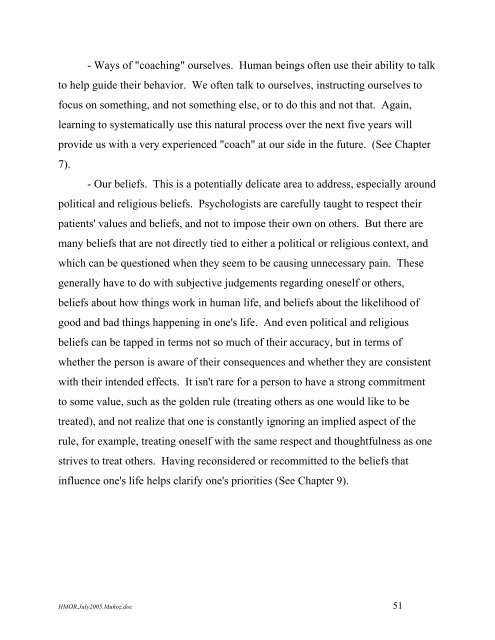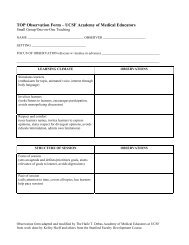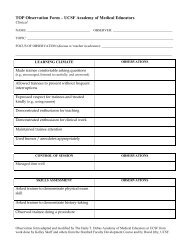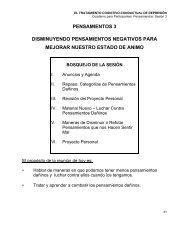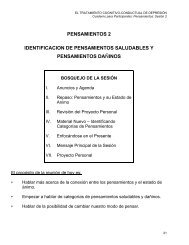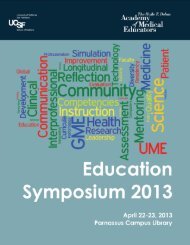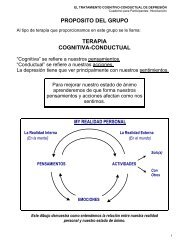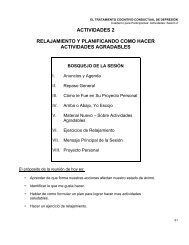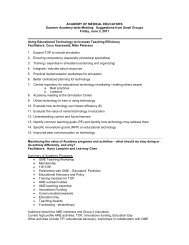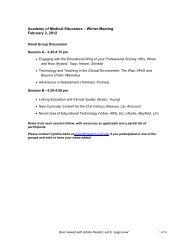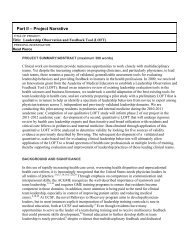The Healthy Management of Reality - Stanford University
The Healthy Management of Reality - Stanford University
The Healthy Management of Reality - Stanford University
You also want an ePaper? Increase the reach of your titles
YUMPU automatically turns print PDFs into web optimized ePapers that Google loves.
- Ways <strong>of</strong> "coaching" ourselves. Human beings <strong>of</strong>ten use their ability to talkto help guide their behavior. We <strong>of</strong>ten talk to ourselves, instructing ourselves t<strong>of</strong>ocus on something, and not something else, or to do this and not that. Again,learning to systematically use this natural process over the next five years willprovide us with a very experienced "coach" at our side in the future. (See Chapter7).- Our beliefs. This is a potentially delicate area to address, especially aroundpolitical and religious beliefs. Psychologists are carefully taught to respect theirpatients' values and beliefs, and not to impose their own on others. But there aremany beliefs that are not directly tied to either a political or religious context, andwhich can be questioned when they seem to be causing unnecessary pain. <strong>The</strong>segenerally have to do with subjective judgements regarding oneself or others,beliefs about how things work in human life, and beliefs about the likelihood <strong>of</strong>good and bad things happening in one's life. And even political and religiousbeliefs can be tapped in terms not so much <strong>of</strong> their accuracy, but in terms <strong>of</strong>whether the person is aware <strong>of</strong> their consequences and whether they are consistentwith their intended effects. It isn't rare for a person to have a strong commitmentto some value, such as the golden rule (treating others as one would like to betreated), and not realize that one is constantly ignoring an implied aspect <strong>of</strong> therule, for example, treating oneself with the same respect and thoughtfulness as onestrives to treat others. Having reconsidered or recommitted to the beliefs thatinfluence one's life helps clarify one's priorities (See Chapter 9).HMOR.July2005.Muñoz.doc 51


